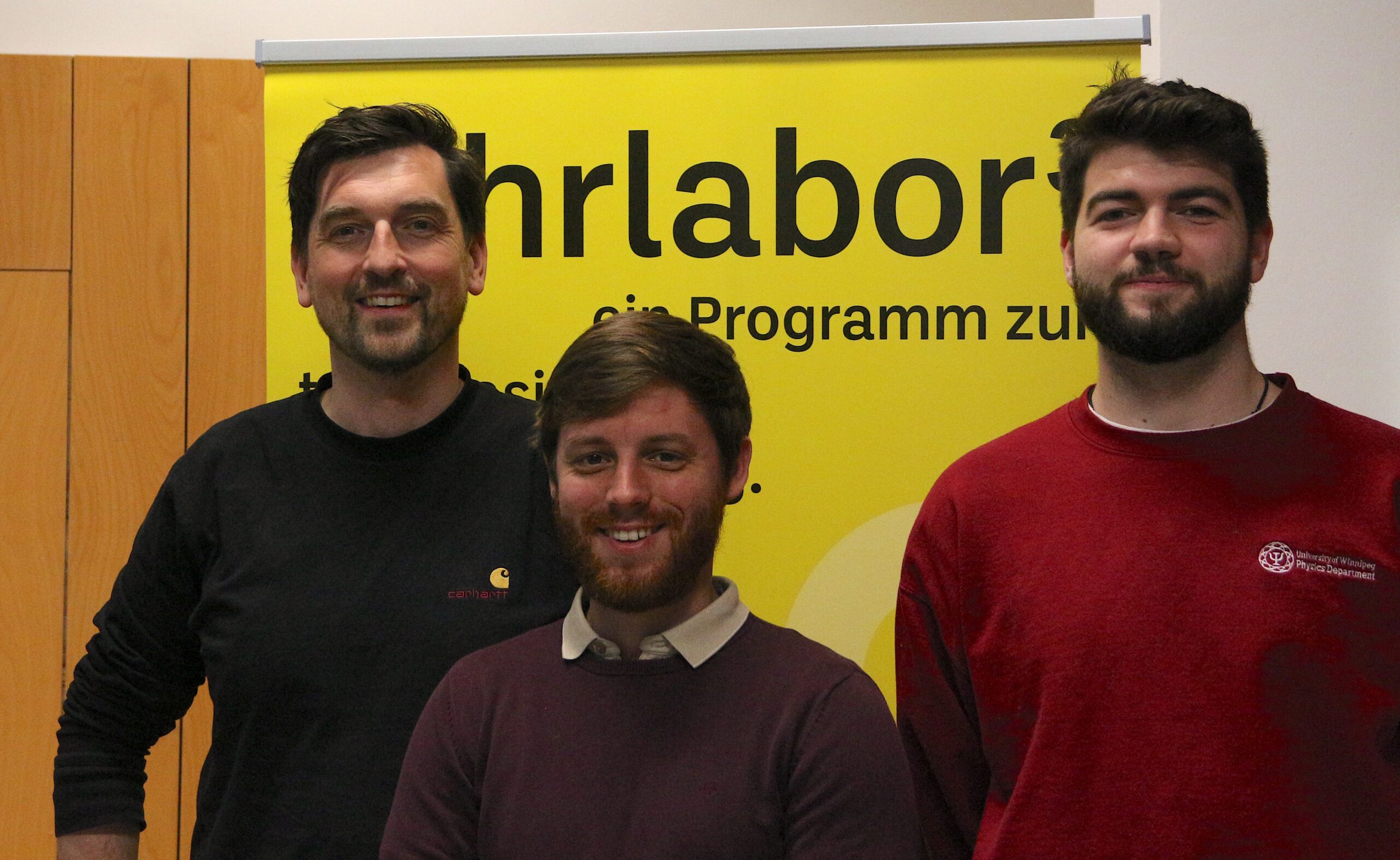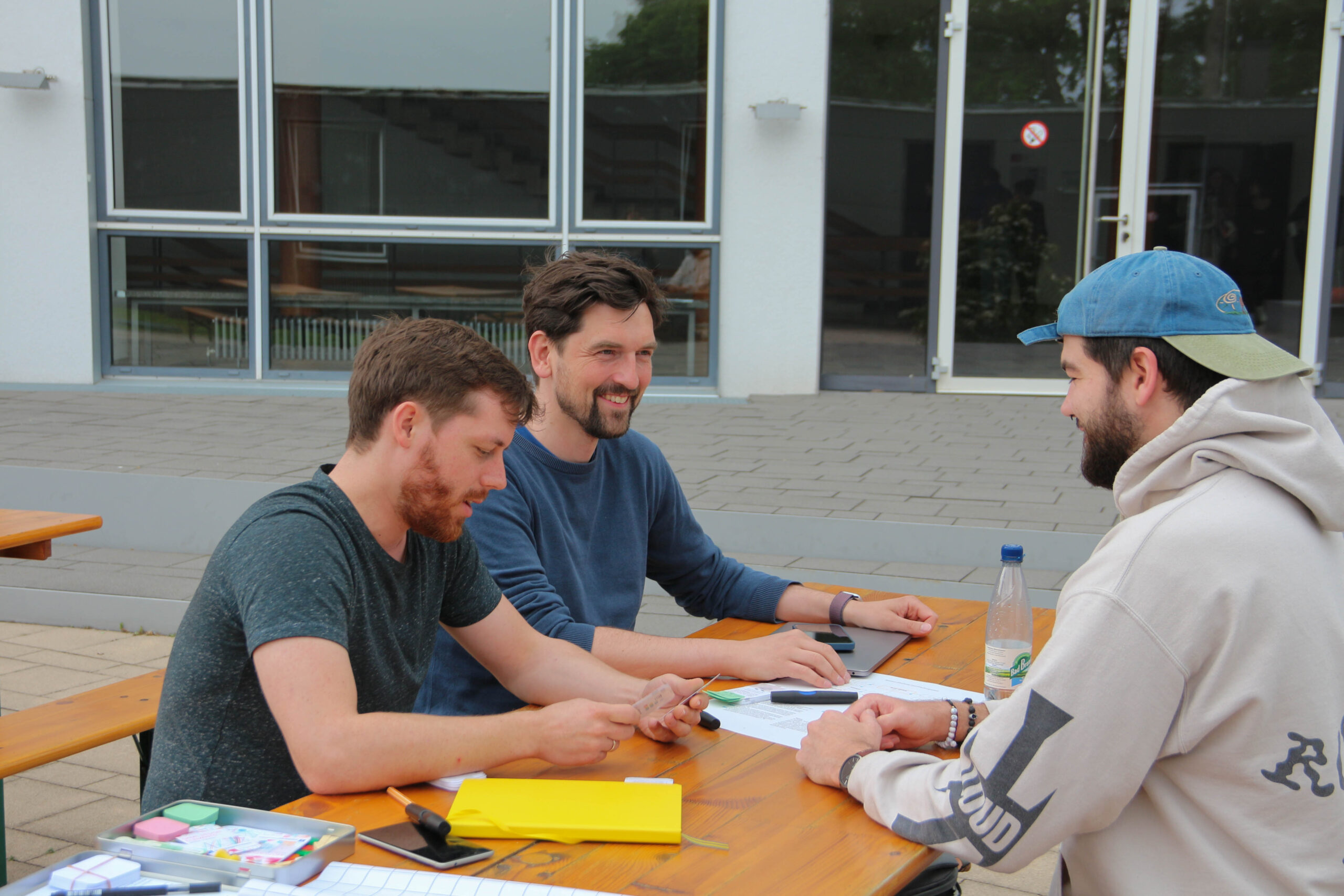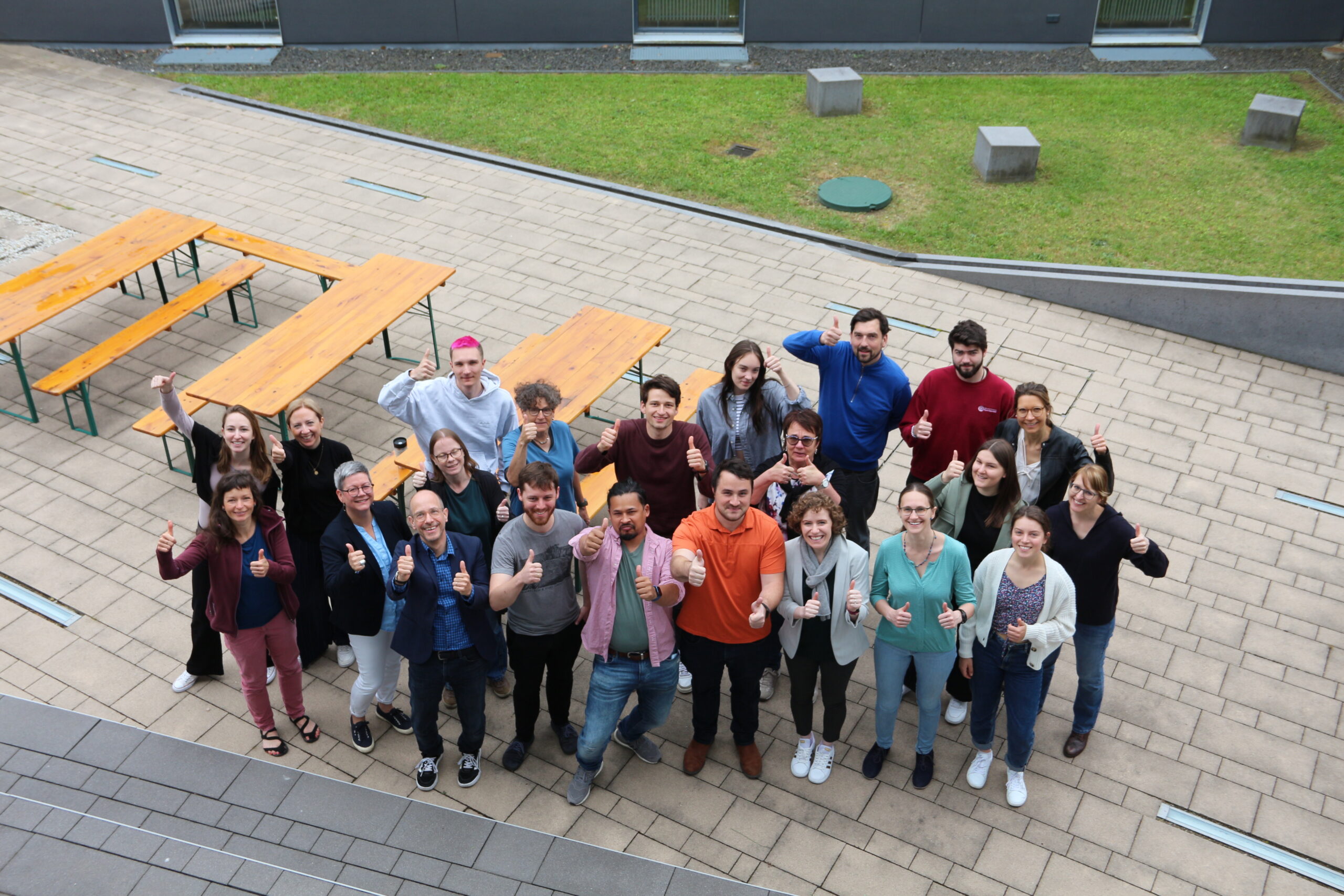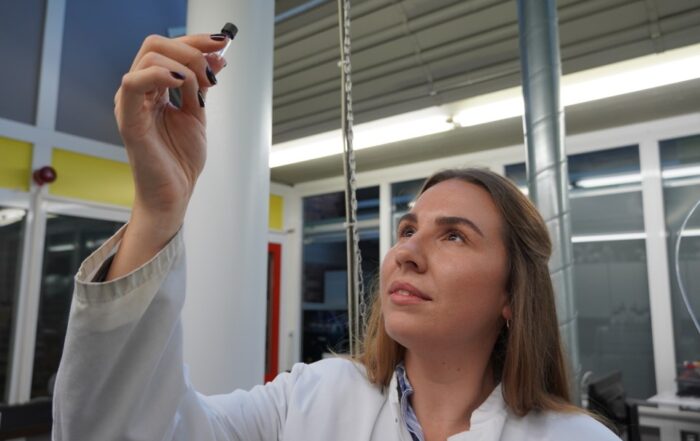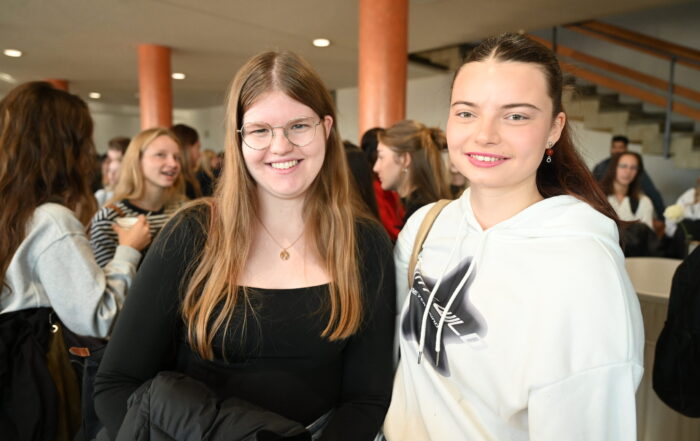27. May '24
by Andreas Wolf and Raik Pawlowsky
When it comes to imparting knowledge, many can do more than just give lectures.
In the teaching lab “hoch drei”, students, staff and lecturers are working on improved teaching formats.
A Coburg team is working on a tool for mathematical concept maps in STEM subjects in university teaching. Concept maps visualize concepts and their interrelationships in the form of networks.
They are used to sort thoughts and put complex topics in relation to one another.
In STEM teaching, this teaching technique is apparently still little used when it comes to conveying interrelationships, according to Prof. Dr. Michael Wick, Head of the Bachelor’s degree course in Technical Physics at the Faculty of Natural Sciences and Health.
He is working on an online tool that should simplify and multiply this use: “Our aim is to take a closer look at the tool from a didactic perspective in order to further develop it in a way that promotes learning before it is published. That’s why we are collecting possible applications in teaching and in students’ independent learning in order to provide didactic guidelines and integrate corresponding functions into the tool.”
Prof. Dr. Wick is supported by didactician Raik Pawlowsky and student Christian Adler.
Adler is particularly excited about the result: “I am very relieved and happy that the endless leafing through physics books will soon be over. With concept maps, I now have a summary for learning. This is particularly helpful for the technical area, because it helps me to summarize complex topics in a compact and clear way and to get an overview of the connections more easily.”
The “hoch drei” teaching lab is the perfect place to test and revise the tool.
Nuremberg Institute of Technology’s program for team-based teaching development at universities brings together lecturers, students and staff.
The aim is for them to work together on projects that promote knowledge transfer using a playful approach.
The conception and implementation of the program is based on the fundamental understanding that forward-looking teaching must be conceived and designed together.
Over a period of around eight months, networking takes place for the team-based development of new teaching projects.
There is no hierarchy between the participants: Everyone works on the joint project on an equal footing, developing, testing and trying things out so that users can get the best result in the end.
The fact that every perspective is represented at the table means that unnecessary work loops and control rounds can be avoided – after all, developers and users work on the product at the same time, according to Raik Pawlowsky, didactics expert in the IMPETUS team at Coburg University of Applied Sciences: “It is important to us that it ultimately has a positive and lasting impact on learning. The joint development with the perspectives of teacher – learner – didactician is very stimulating and efficient.”
This year’s second attendance phase took place between May 15 and 17 at Coburg University of Applied Sciences.
At each of the four events, the universities presented their projects and interim results, received feedback and tried out new ideas directly. Six teams are working on their projects, as project manager Dr. Benjamin Zinger says: “The second funding round of the Teaching Lab program focuses on the further development of STEM teaching. In addition to the successful application from the Coburg team led by Prof. Dr. Wick, one team each from Aschaffenburg University of Applied Sciences, Hof University of Applied Sciences, Munich University of Applied Sciences, Nuremberg University of Applied Sciences and Rosenheim University of Applied Sciences have been selected for their innovative teaching development projects. The topics of the projects range from AI developments in mathematics and its integration in teaching to the implementation of a peer teaching concept in medical technology.”
The team from Coburg was able to convince the jury with the idea of communicating mathematical relationships in the form of concept maps.
Zinger knows that this also has great transfer potential for other courses: “The biggest advantage is that this way of preparing knowledge can be better adapted to the individual learning needs of the students.”
Learning designs were already developed in the first run of the 2023 program, which showed clear effects after their implementation.
According to Zinger, student evaluations and feedback from teaching staff showed a significant reduction in drop-out rates, greater student engagement and improved learning performance.
The final results of the participants will be published at the final event in October.
The results of the teaching development projects implemented to date have been compiled in a publication.
The program, funded by the Bavarian State Ministry of Science and the Arts and the Bavarian Industry Association (vbw), is initiated by the Research and Innovation Laboratory for Digital Teaching (FIDL) in close cooperation with the Bavarian Center for Innovative Teaching (BayZiel).


